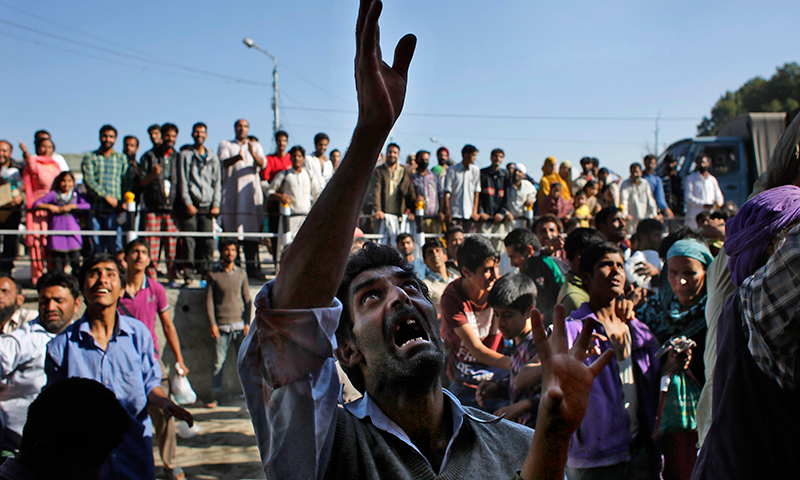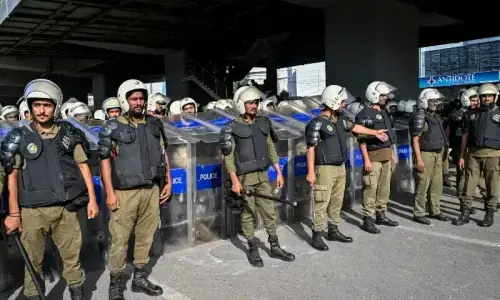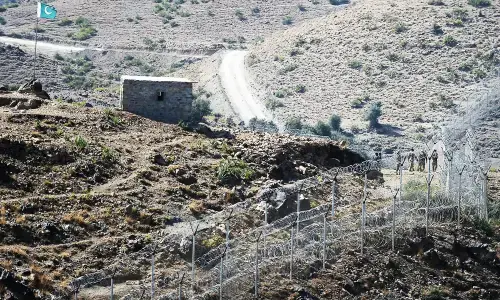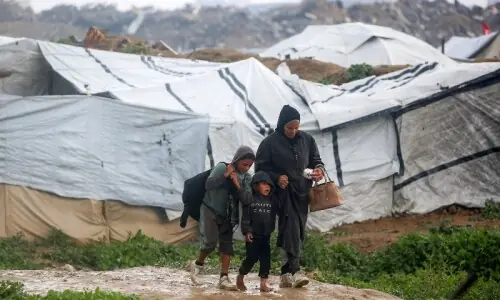SRINAGAR: Rescuers struggled to reach more than 200,000 people still stranded on Saturday in India-held Kashmir as deadly floodwaters receded, revealing horrific devastation in the Himalayan region, officials said.
A smell of death hung in the air as animal carcasses lay in the roads of normally scenic city of Srinagar, a top tourist draw that one top official said had been “drowned completely” by the worst floods in over a century.
Know more: Srinagar 'in ruins' after floods
“This is not a flood, this is a tsunami,” Mehraj-Ud-Din Shah, state disaster response force chief, said by phone.
“There’s a stench everywhere as animals have died and their bodies are floating around,” fuelling concern about the spread of water-borne disease, Mr Shah said.
Officials said it was still too early to assess fully the extent of the disaster with many roads still impassable.
Security forces were using boats and helicopters to deliver food supplies and evacuate survivors. People waved from rooftops and upper-storey windows to attract attention.
However, there was anger over slow rescue efforts. Some rescuers had been attacked, although such incidents had now decreased, Mr Shah said.
“My men have been beaten up. Our boats have been attacked with stones. If people are depressed they can do anything. They blame the government for not doing anything,” he said.
“We try to calm them down by saying ‘we will help you, we will help your family, come with us’,” he said.
Meanwhile, as waters subsided, emergency officials were able to get to more afflicted areas.
“More than 200,000 people are still stranded,” Shantmanu, Jammu region’s divisional commissioner, who uses one name, said.
Rescue teams were now able to increasingly get “inside houses and get out those still trapped inside and account for dead bodies,” he said.
In some areas, TV footage showed entire villages wiped out, their houses smashed by floodwaters that swept away their occupants. Strewn on the ground were household items like saucepans and cups and soggy clothing.
The government estimates that at least 200 people have died and 142,000 people have been rescued in the disputed region where militants have been fighting Indian rule since the late 1980s.
State chief minister Omar Abdullah promised houses would be rebuilt before “the immense cold” of winter strikes. “There’s no question of people living in tents in winter,” he said in Srinagar.
Some 137 relief camps were operating in the Kashmir valley, alone assisting over 100,000 people, officials said.
But “with only 65 days before snow is forecast in the (Kashmir) valley, the race against time has already begun for the rehabilitation process,” warned Bipul Borah, a senior Oxfam charity official.
Published in Dawn, September 14th, 2014































